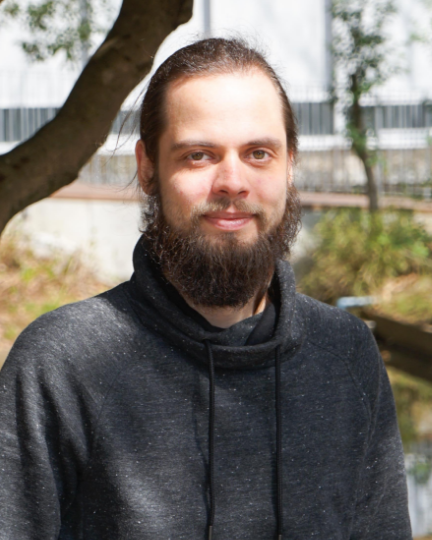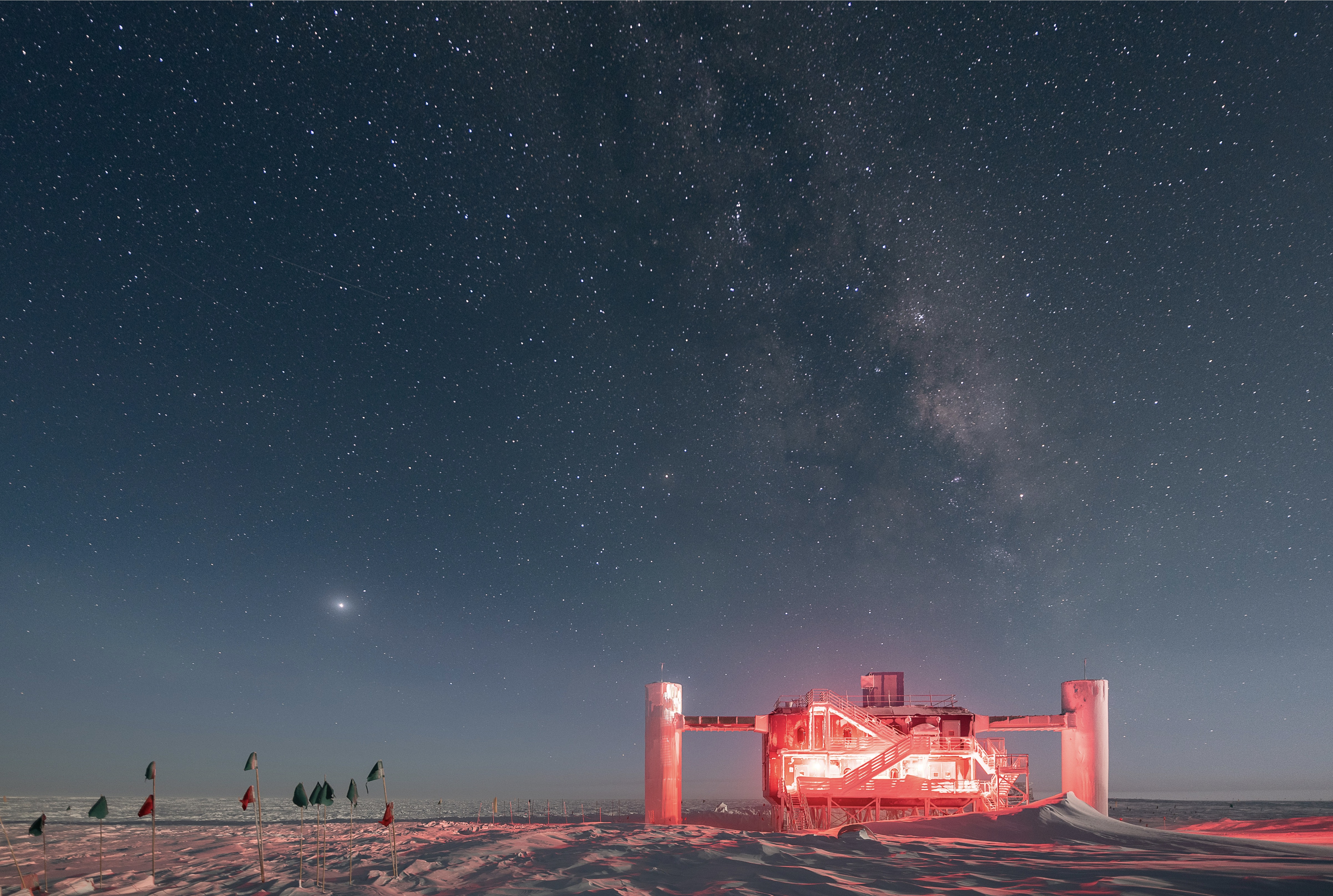
-
Maximilian MEIER
Researchmap
Tenure Track Assistant ProfessorChiba University Institute for Advanced Academic Research / International Center for Hadron Astrophysics
Keywords
Astrophysical tau neutrinos, GZK neutrinos, IceCube, Machine learning
Professional Memberships
IceCube collaboration, German Physical Society (DPG), JPS
Research Theme
High-Energy Neutrino Astronomy

Abstract
One of the critical reactions in cosmic ray physics is the resonant interaction between ultra-high-energy cosmic rays and cosmic microwave background radiation photons.
This interaction produces neutrinos, known as "GZK neutrinos," which are expected to have very high energies.
While their existence can be predicted based on natural assumptions, experimental observation has not yet succeeded.
My research group at Chiba University has been involved in the international collaborative experiment, called IceCube, for many years, aiming to measure this flux.
To achieve this goal, I am conducting research in three steps to detect the world's first GZK neutrino.
The first step is to improve the method of event selection for neutrinos with ultra-high energies.
We are developing methods to efficiently remove the contribution of muons, which are the main background events caused by their creation in the atmosphere and entry into the IceCube detector in a bundle.
This will improve the search sensitivity for GZK neutrinos."
The next step of the IceCube is the "IceCube Upgrade Plan." By densely placing a new type of detector, we aim to improve the sensitivity to low-energy neutrinos.
Additionally, we deepen our understanding of the characteristics of the ice in Antarctica and reduce systematic errors in analysis.
I have been working on constructing a system to evaluate the performance of the “D-Egg,” a detector developed at Chiba University, and proceeding with the full inspection of all 300 D-Egg detectors that will be sent to Antarctica.
After the IceCube Upgrade Plan, the next-generation neutrino telescope project, "IceCube-Gen2," is scheduled.
This is a grand plan to increase the detection volume of IceCube by eight times.
I am conducting simulations of IceCube-Gen2 and evaluating its expected sensitivity.
By improving the analysis method to make full use of the performance of the larger detector, the detection sensitivity of GZK neutrinos is expected to improve by about one order of magnitude.
